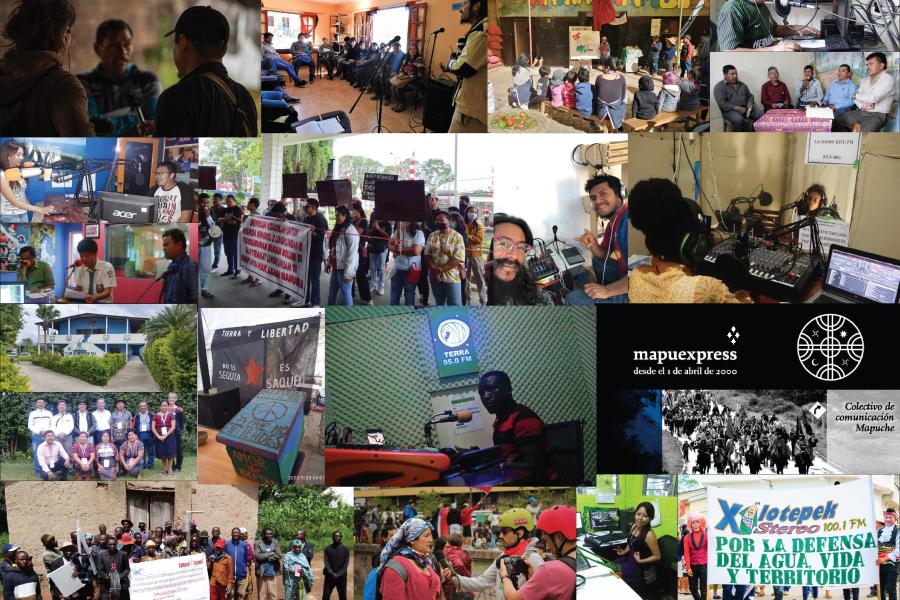Thousands of years ago, all humans lived by hunting and gathering rather than growing their own food. The number of hunter and gatherer societies has gradually diminished. Those societies that remain live in relatively inaccessable areas, either remote jungles or arctic regions. However, as is often the case, the more such societies are either exterminated or assimilated, the more interest-they attract.
Theories about the place of hunters and gatherers in human history have been contradictory. On the one hand, such groups have been thought to occupy the bottom rung of a social, evolutionary ladder. Others, however, argue that they represent the original affluent or leisure societies. Such theories are far from unimportant. They continue to reflect or inform the actions and policies of states toward hunters and gatherers.
Hunters and gatherers throughout the world live in vastly different areas and have very different cultures. As the articles in this issue demonstrate, they share little more than the brunt of political and economic forces that are destroying their ways of life. Yet, those who study such societies in an attempt to understand more about human origins rarely report the current predicament of such groups.
Let's take the "Bushmen" as a case in point. Probably no other group has received so much scholarly or classroom attention in anthropology during the last 25 years. One researcher estimated that 10-15 pages has been published for each "Bushman" alive today. Always emphasizing the traditional over the contemporary changes, writings about the group have only recently admitted that for decades, 75 % of the Bushmen in Namibia, for instance, have worked as wage-laborers for white or black farmers on lands that were once their own. John Marshall's article brings the disturbing news that the last Bushmen will be evicted from their traditional lands if a proposed game park is established in Namibia. One of the main attractions of the park will be Bushmen who are expected to hunt and gather while tourists watch.
While anthropologists cannot, perhaps, be criticized for failing to research or address moral issues, with regard to hunters and gathers, it is time to set the record straight. Such societies, at least at this time in history, do not live in isolation. Not one article in this issue describes a group that is totally dependent on hunting or gathering for their minimal dietary needs, much less the other material desires every group has as a result of contact with outsiders.
In order to acquire food or materials from outsiders, groups such as the Batak, Agta, Mbuti and Mataco work part-time as agricultural laborers either to receive goods from trading partners or cash with which to purchase them. Some groups' lands have been taken by colonists or mining or logging companies. Groups such as the Mataco, Ache and Irula do not have sufficient land to maintain their population through traditional hunting and gathering. They are forced to seek accommodation with "outsiders." Such groups are neither understood nor respected, and the theory that hunters and gatherers are at the bottom of a social ladder becomes a reality.
Many hunters and gatherers have been unable or unwilling to assimilate into national life. The demise of such groups is often not even known by the world at large, much less documented. Two groups in Tierra del Fuego - the Yahgan and Ona - illustrate that the forces which led to the extinction of peoples a century ago are the same as those that affect such societies in the late twentieth century.
While some groups have been forced to assimilate, they have chosen to incorporate skills from their former way of life into their present one. Irula in India, for example, have formed a snake catchers cooperative which earns income from selling poisonous snake venom (without killing the snakes) and from using snakes to catch rats which eat 10-25% of the grain harvested in most Indian villages. The Raute illustrate that while willing to assimilate, and even ingenious in their attempts, a number of hunter and gatherer societies are doomed because their land rights are not respected.
Indigenous peoples throughout the world increasingly recognized the importance of land rights as their key to survival. The three articles about groups in northern Canada illustrate how long and protracted such struggles can be even in a country which claims to recognize indigenous "nations," the land rights of indigenous peoples, and the premise of ethnic pluralism. Imagine, then, how difficult it will be for hunters and gatherers in other areas of the world as they are incorporated into debt ridden states that do not share these assumptions.
We have learned a lot about human history from hunters and gatherers, but now we should turn our attention to contemporary history and examine ways to assist different societies to adjust to the changes that threaten their survival.
Article copyright Cultural Survival, Inc.



